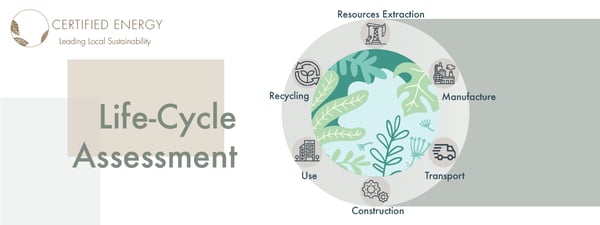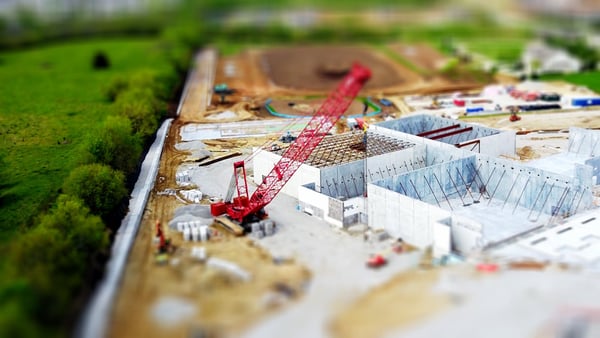22 min read
Section J vs JV3, Know Which Method Suits your Project
To ensure a seamless approval process that doesn't hold you down or end up costing more than it should, it's critical...

it can help you understand the environmental impact buildings have.
A Life Cycle Assessment or LCA is a tool providing information to building professionals helping them to understand the energy usage and various other environmental effects that are associated with the entire life cycle phase of a building. LCA is a method used to evaluate the environmental impact of processes and products from “cradle to grave”. LCA endeavours to identify the environmental effects of a product, and is progressively becoming a more widely adopted practice in the context of national and international environmental regulations.


An LCA is an optional rating system that has two main benefits, those being to help consumers and building-code officials make informed decisions whilst designing and building, and attempting to drive innovation by demonstrating areas through which the manufacturers can improve a product’s quality and efficiency.
A Life Cycle Assessment requires the interrogation and study of the procedures through which a product is created, used and subsequently disposed. This process includes the study of the transport of materials, their packaging and the disposal of said packaging, as well as the embodied energy required to construct them. This is compared against international standards using LCA databases, tools, and models, to attempt to fully understand the smallest implications that production and construction has on the environment. By using an LCA, contractors can know how they can better prevent environmental problems related to project management and improper waste disposal, home builders using LCA can explain how a green building material yields energy savings throughout its lifetime, and building owners can see how sustainable products reduce environmental impacts for the lifetime of their investment.

Life Cycle Assessment (LCA) is a comprehensive evaluation of the environmental impacts associated with all stages of a product, building, or process. In the construction industry, this means analysing everything from raw material extraction, manufacturing, and transportation, to usage, maintenance, and eventual disposal or recycling. By examining the full life cycle, LCA provides a holistic view of a construction project's environmental footprint.
At Certified Energy, we recognise the importance of this thorough analysis. Our LCA service is designed to identify environmental hotspots, such as areas with high energy consumption, significant greenhouse gas emissions, excessive water use, and substantial waste generation. By pinpointing these critical areas, we help construction companies understand their environmental impact and develop strategies to mitigate it.
Corporate Social Responsibility (CSR) is increasingly becoming a cornerstone of modern business practices, particularly in the construction industry. LCA plays a pivotal role in enhancing CSR by providing data-driven insights into the environmental impacts of construction activities. Companies can use LCA to demonstrate their commitment to sustainability, transparency, and ethical practices.
To ensure a seamless approval process that doesn't hold you down or end up costing more than it should, it's critical...
What is a WUFI Model?
WUFI (Wärme Und Feuchte Instationär, which translates to Transient Heat and Moisture) is a...
A JV3 Report is an alternative assessment method for non-residential buildings which uses a reference building to...
FOR IMMEDIATE RELEASE
Sydney, 11 March 2025
Certified Energy is pleased to announce our...